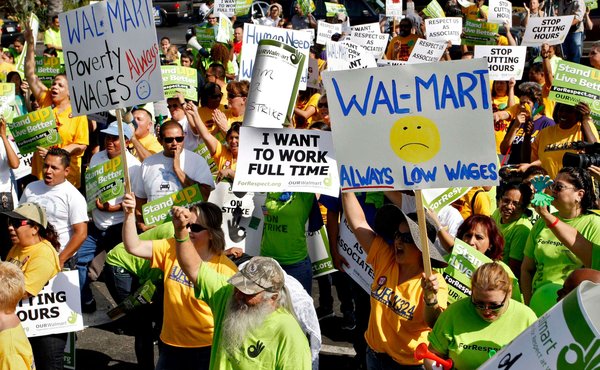Paul Wiseman
AP
August 3, 2013
The 162,000 jobs the economy added in July were a disappointment. The quality of the jobs was even worse.
A disproportionate number of the added jobs were part-time or low-paying – or both.
Part-time work accounted for more than 65 percent of the positions employers added in July. Low-paying retailers, restaurants and bars supplied more than half July’s job gain.
“You’re getting jobs added, but they might not be the best-quality job,” says John Canally, an economist with LPL Financial in Boston.
So far this year, low-paying industries have provided 61 percent of the nation’s job growth, even though these industries represent just 39 percent of overall U.S. jobs, according to Labor Department numbers analyzed by Moody’s Analytics. Mid-paying industries have contributed just 22 percent of this year’s job gain.
“The jobs that are being created are not generating much income,” Steven Ricchiuto, chief economist at Mizuho Securities USA, wrote in a note to clients.
That’s one reason Americans’ pay hasn’t kept up with even historically low inflation since the Great Recession ended in June 2009. Average hourly pay fell 2 cents in July to $23.98 an hour.
Among those feeling the squeeze is Elizabeth Wilkinson, 28, of Houston. After losing a $39,000-a-year administrative job at Rice University in January, Wilkinson found work at an employment agency for $15 an hour. Yet she’s had to supplement that job with part-time work as a waitress.
“This morning I put $1.35 worth of gas in my car because that is all the money that I had,” Wilkinson said via email. “It’s very difficult to survive on $30,000 (a year), and I am living paycheck to paycheck.”
Part-time work has made up 77 percent of the job growth so far this year. The government defines part-time work as being less than 35 hours a week.
 Daily Stormer The Most Censored Publication in History
Daily Stormer The Most Censored Publication in History



